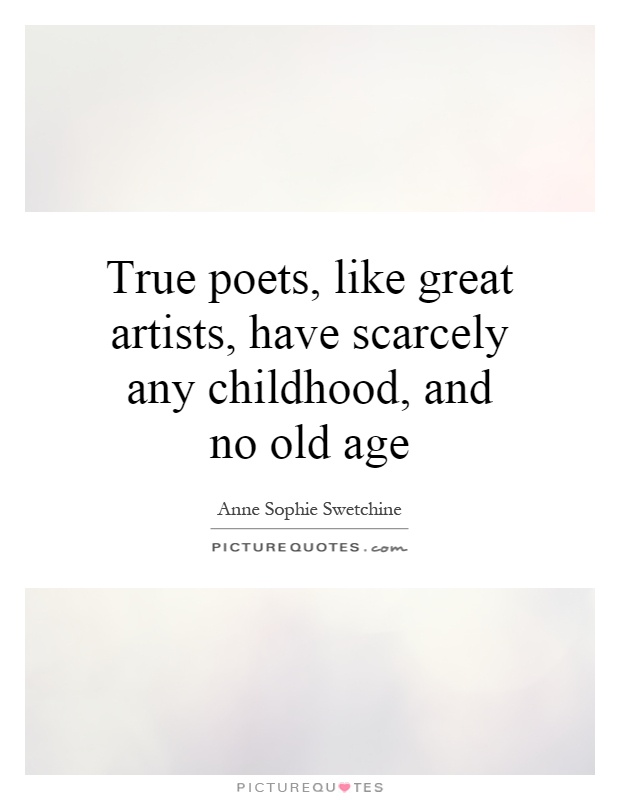True poets, like great artists, have scarcely any childhood, and no old age

Old Age QuotesTRUE Poet QuotesGreat Artists QuotesGreat Art QuotesGreat Artist QuotesAnne Sophie Swetchine Quotes
True poets, like great artists, have scarcely any childhood, and no old age
Anne Sophie Swetchine, a Russian-French writer and thinker of the 19th century, exemplifies the idea that true poets, like great artists, have scarcely any childhood and no old age. Swetchine's life and work reflect a deep understanding of the human experience and a timeless wisdom that transcends the boundaries of age.Born in 1782 in Moscow, Swetchine was raised in a privileged and cultured environment. However, her childhood was marked by tragedy and loss, as she lost her mother at a young age and was separated from her father due to political turmoil in Russia. These early experiences of suffering and upheaval shaped Swetchine's worldview and instilled in her a sense of empathy and compassion for others.
As a young woman, Swetchine moved to Paris, where she became a prominent figure in literary and intellectual circles. She was known for her keen intellect, wit, and insight, and her salon became a gathering place for some of the leading thinkers and writers of the time. Swetchine's writing, which included essays, letters, and reflections on faith and spirituality, was characterized by a profound sense of introspection and a deep understanding of the complexities of human nature.
Throughout her life, Swetchine continued to explore the themes of love, suffering, and redemption in her work, drawing on her own experiences of loss and hardship. Her writing was marked by a sense of timelessness and universality, speaking to the eternal truths of the human condition.
In her later years, Swetchine's work took on a more contemplative and philosophical tone, as she grappled with questions of faith, mortality, and the meaning of life. Despite her advancing age, Swetchine remained a vital and creative force, continuing to produce work that resonated with readers of all generations.












 Friendship Quotes
Friendship Quotes Love Quotes
Love Quotes Life Quotes
Life Quotes Funny Quotes
Funny Quotes Motivational Quotes
Motivational Quotes Inspirational Quotes
Inspirational Quotes